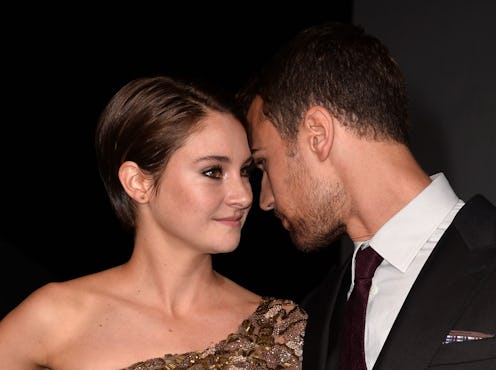Entertainment
How do you adapt a dystopian YA novel?
Books are beloved for many reasons, one of which is their sheer power to transform the landscapes of our minds into literally anything imaginable. Words can often paint a more vivid and complicated picture than images, so it's no wonder those with the most abundant imaginations are avid readers and best selling authors. So when it comes to adapting a novel for screen, there are many questions that must inevitably be asked: Which characters are we going to cut? Which scenes do we keep, and which do we shorten? Do we use CGI or shoot on-location? For the creative team behind the dystopian adventure Divergent, all of these questions and more became major concerns.
"I knew the second the book hits the shelves it stops belonging to the person who wrote it, and it starts belonging to everyone who reads it," author Veronica Roth said. "So I was pretty well practiced in letting it go, which I think is a good thing, because there's no way they can be exact replicas of each other and they shouldn't be, they are different mediums. They communicate in different ways."
Roth, the 25-year-old author of the best selling series, has a producer credit attached to the film, so while her her title allowed her a say in the adapting process, she trusted director Neil Burger with most of the heavy lifting. "I had a lot of trust with [the producers] and I trusted what they would make, and I love the movie, I'm really happy with the way it all turned out. So the key for me was finding people that I trusted to respect the work and to love it and to do good things with it," she said.
For Burger, the biggest challenge in transforming Roth's 400+ page book into a 100 page script, was jamming in all of the necessary ingredients. "The challenge was fitting all of that story into a movie. We really loved the story and loved all the different characters and all the different events, but a movie is just a different beast than the book," Neil said.
But he also thanked Roth for hanging out on set. "There were so many questions that came up, so to have the source right next to me to ask questions... She hadn't finished writing the third book when I was prepping the movie so it was fantastic to get her insight and get the truth behind all of it, so we made sure all of our characters were on the right path in the movie."
However, while Divergent is set in Chicago, it's set in the future, after a time when most of the world had been destroyed except for this vast and towering city. How would the film's creators craft the landscape, based on a real place, without looking cheesy?
"Veronica populated the book with so many landmarks of Chicago. And that made it seem accessible and recognizable," producer Lucy Fisher said. "It makes it a little less sci-fi, it makes it like, we are people, but we're just living in a different time period."
"When we talked about where we shoot, everyone goes to rebate city," producer Douglas Wick said, meaning the cheaper it is to produce a film, the better. "But Neil from the beginning made an impassioned argument that we had to shoot in a real place, or it would feel like another computer world. He made that argument so articulately, that if you were looking at the 5 million rebate, versus shooting in Chicago, he argued the creative value of shooting there would more than make up for whatever financial loss was."
Burger reiterated his colleagues claim, noting that making Divergent appear different than other films in the same genre, like say, The Hunger Games, was paramount. "
"How do we make it different?" Neil asked. "We've seen lots of movies set in the future, and dystopic and post-apocalyptic movies. They often have this CG'ed cityscape that's kinda cool and is a real visual effects achievement but still feels like... you know it's not real. The movie is about human nature, it's about Tris and all these characters, so how do we make the setting real?"
And the realness, the essence of the stories message, can resonate with any age, not just the young adult crowd which the book is catering to. "These themes apply to someone who's 16, 26, any age: Where do I fit into the world? Who am I? Am I different, and if I'm different, do I hide it? Or do I speak with my own voice? And what's the cost of doing that? It's a metaphor for anybody, who do you speak up for, when do you conform, and when do you not?" Burger said.
Roth, who had the idea for the series as a freshman in college, crafted the fantastical story based on the emotions of her own coming-of-age. "The idea that you have to choose [your career] at 16 is more of an emotional reality. Because obviously we know as we grow older that you can change your mind, you can change your career, you can change your whole life. You don't have to choose at 16 or 18. But when I was 16 I felt like I had to plan my whole life. And that felt real to me and that's why it's on the page," Roth said.
The film's star, Shailene Woodley, was eager to sing Roth's praises: "She was 21 when she wrote the first book. She's 25 now I believe, she's married, she has three books under her belt I mean... what a badass," the Divergent star said.
